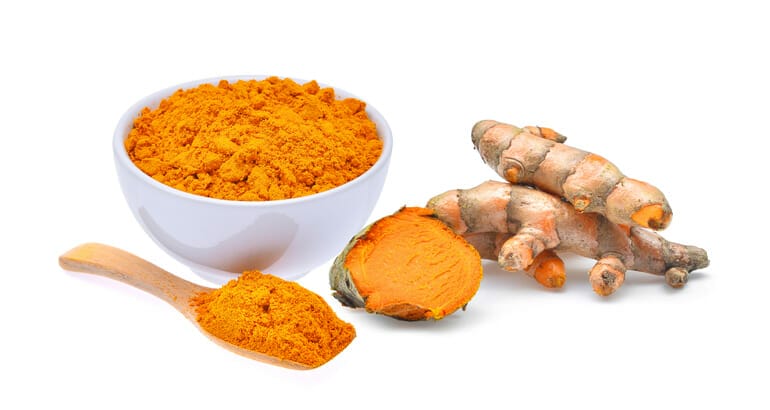Turmeric, also called saffron or the golden spice, is a tall plant that grows in Asia and Central America. It is made from the ground roots of the plant and is the major ingredient in curry powder. Available in capsules, teas, powders and extracts, we offer some examples of how turmeric might benefit your health.
1. Anti-inflammatory
Researchers attribute the powerful antioxidant properties of turmericto one of its component, curcumin. This component not onlyfinds utility in medicine for its anti-inflammatory and anti-cancerousproperties. Curcumin’s ability to inhibit enzymes that inhibitspain and discomfort making it a powerful anti-inflammatory agent.
2. Fights Cancer
Inflammation is interlinked with the growth of certain forms ofcancer cells. In these types of tumor development, curcumin alsofinds utility as a component with chemo-preventive effects. TheNational Institutes of Health (NIH) has four ongoing clinical trialsexamining curcumin as a potential drug for pancreatic cancer, multiplemyeloma, Alzheimer’s disease and colorectal cancer.
3. Neuroprotective
Curcumin’s properties as antioxidant and anti-inflammatory agentplace them with desirable traits for a neuroprotective drug. Diseaseslike Alzheimer’s, Parkinson’s and Huntington’s are mainlycaused due to the accumulation of toxic proteins in the brain cellscausing the death of nerve cells.
4. Osteoarthritis Relief
The disease evolves over time and is characterized by decliningjoint functions and thereby increasing patients’ discomfort. Curcumin has a great potential for treating arthritis and had been classifiedas having preclinical evidence of effectiveness.
5. Anti-mutagenic
Chemotherapy and radiation treatments are often known to initiatenew forms of cancer. The consumption of curcumin in powderform (as recommended by physicians) can effectively inhibit metastasis,or a secondary malignant growth.
6. Cardiovascular Benefits.
Curcumin has been found to inhibit platelets from clumping together and thereby improving blood circulation. The compound has also been effective in lowering cholesterol level.
WORD OF CAUTION: Although not commonly considered to be an allergenic substance, turmeric can have side effects on the body, including nausea, dizziness or diarrhea, particularly when consumed in large quantities. In certain cases, excessive amounts of turmeric consumed in a medicinal capacity have caused heart irregularities. Also, turmeric may slow blood clotting by increasing the effects of anti-clotting medicines. Therefore, people on anti-coagulator blood thinning medication must avoid turmeric.
NOTE: Always speak to a medical professional before adding thispowerful substance to your diet or supplement regimen and remember– everything should be taken in moderation.
Source: Medical News Today





